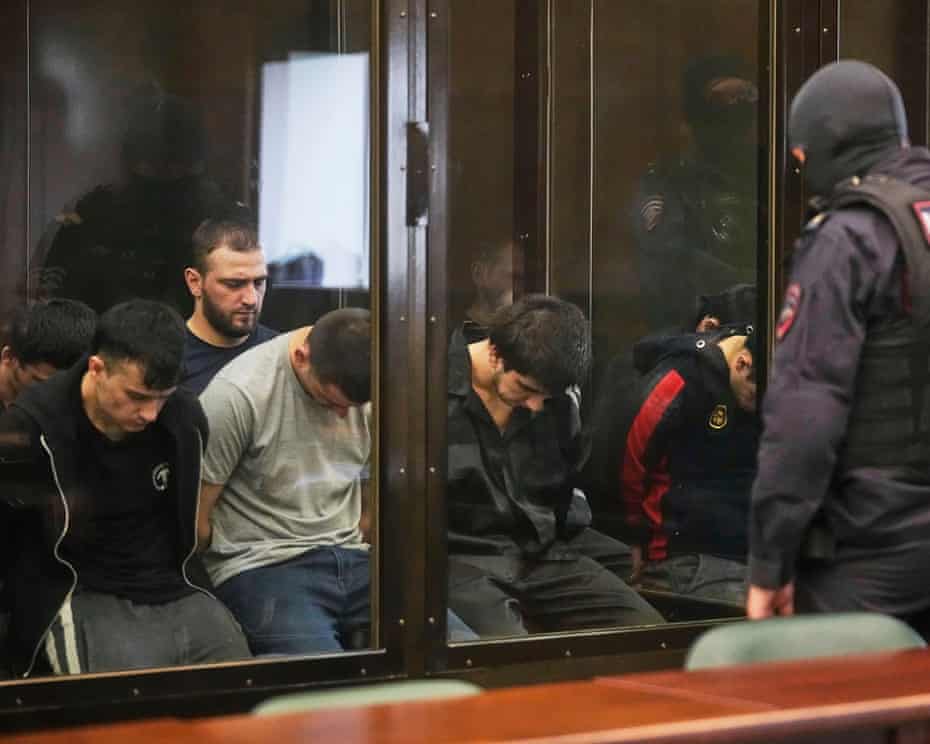Four suspected gunmen, including 19 persons, went on trial in Moscow on Monday over the Crocus City Hall terrorist attack, which left 149 people dead in one of the deadliest assaults in modern Russian history.
The attack, which took place on 22 March last year, saw four armed men from Tajikistan allegedly storm the concert venue on the outskirts of Moscow. The assailants opened fire on the crowd before setting the building alight, resulting in hundreds of injuries and widespread panic.
The Islamic State affiliate in central and south Asia, ISIS-K, claimed responsibility for the massacre. However, the Russian government has repeatedly alleged that the attack was carried out “in the interests” of Ukraine.
The four alleged attackers, Saidakrami Murodali Rachabalizoda, Dalerdzhon Barotovich Mirzoyev, Shamsidin Fariduni and Muhammadsobir Fayzov, appeared in court on Monday alongside 15 other individuals accused of aiding the attack. Approximately 30 survivors were also present at the hearing. The trial, being held in a military court, opened behind closed doors, with further sessions expected later this week.
The Crocus City Hall assault sent shockwaves through Russia and highlighted a glaring lapse in national security. Critics argue that the country’s intelligence services were too distracted by the war in Ukraine and internal crackdowns on anti-war dissent to prevent such an attack.
Warnings given on imminent threats to large gatherings in Moscow
In the weeks leading up to the massacre, Western intelligence agencies had issued private and public warnings to Russian authorities, citing imminent threats to large gatherings in Moscow. But just three days before the attack, President Vladimir Putin dismissed the warnings as fearmongering, calling them “an attempt to scare and intimidate our society.
According to case materials cited by the state-run TASS news agency, nearly half of the victims died not from gunfire but from smoke and carbon monoxide inhalation caused by the blaze.
The treatment of the suspects by Russian authorities has sparked international outrage. When the men first appeared in court following the attack, they bore visible signs of torture. One widely circulated video appeared to show a detainee having his ear cut off and forced into his mouth while in the custody of Russian forces.
All four accused had reportedly been living in Moscow or nearby areas, part of a migrant population of approximately 1.5 million Tajiks who have left their homeland due to poverty and unemployment. Russian investigators believe the men were recruited and radicalised by ISIS-K while in Russia.
Despite extensive evidence pointing to ISIS-K as the sole perpetrator, Russian officials have repeatedly attempted to link Ukraine and Western nations to the crime. Last month, Russia’s investigative committee issued a statement claiming: “This inhuman crime was planned and committed in the interests of the current leadership of Ukraine to destabilise the political situation in our country.”
Ukraine has strongly rejected the accusations, calling them “baseless and absurd.”
Alexander Bortnikov, head of Russia’s FSB security service, has also suggested, without offering substantiation, that the United States, the United Kingdom, and Ukraine were somehow involved in orchestrating the attack.



